Events
| Name | organizer | Where |
|---|---|---|
| MBCC “Doing Business with Mongolia seminar and Christmas Receptiom” Dec 10. 2025 London UK | MBCCI | London UK Goodman LLC |
NEWS
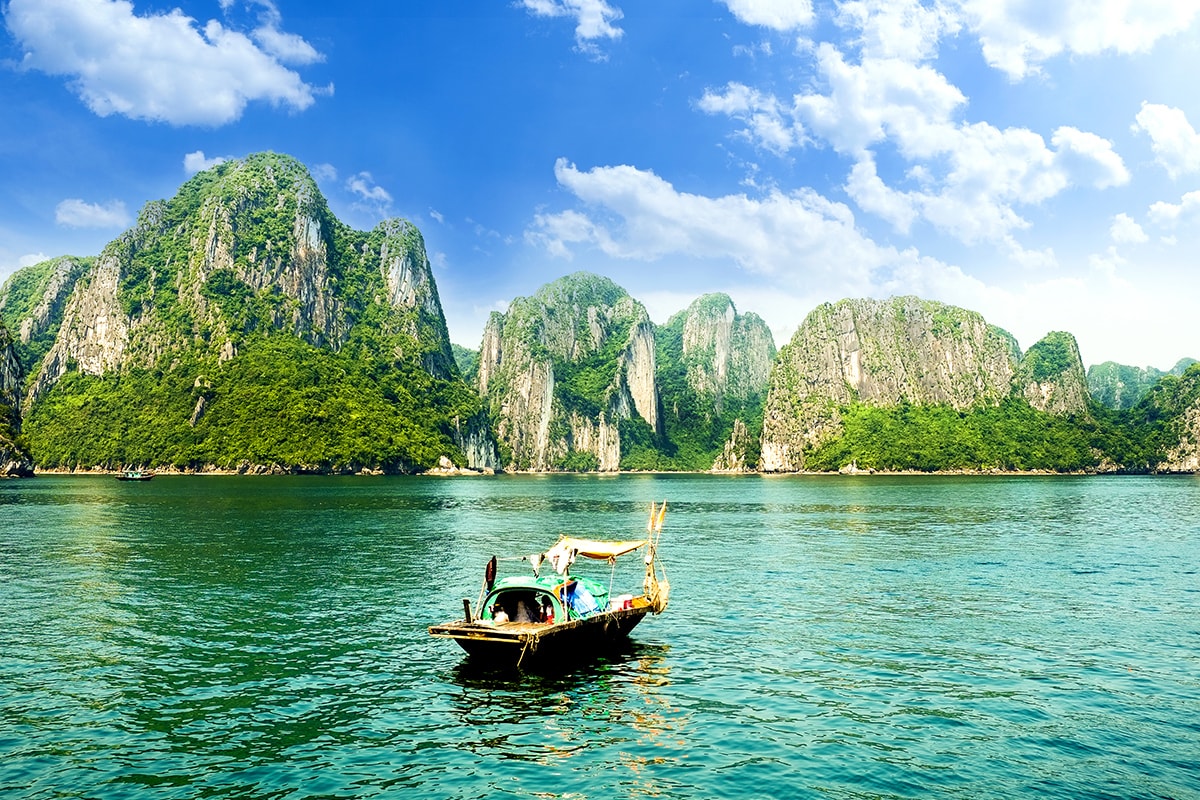
Mongolian and Vietnamese Presidents Brief Media on Outcome of Official Talks www.montsame.mn
Following official talks, Mongolian President Khurelsukh Ukhnaa and Vietnamese President Vo Van Thuong briefed the media on the outcome of the discussions.
In his speech, President Khurelsukh Ukhnaa expressed heartfelt gratitude to Vietnamese President Vo Van Thuong and the Vietnamese people for their warm welcome extended to the Mongolian delegation on the occasion of the 70th anniversary of diplomatic relations between Mongolia and Vietnam, a historical and friendly relationship.
President Khurelsukh continued, "Relations between Mongolia and Vietnam began in the 13th century with military and political ties and were reinvigorated in the first half of the 20th century when both countries restored national independence, laying the foundation for modern relations."
The Mongolian President expressed confidence that the State Visit to the Socialist Republic of Vietnam would further reinforce the friendly relations between the two countries and serve as a crucial catalyst in charting the course for future cooperation.
"As an outcome of the official talks, the two countries successfully created favorable conditions for expanding food, agriculture, trade, and economic cooperation, supporting the tourism industry through policy, and increasing citizen exchanges," President Khurelsukh emphasized.
The President of Mongolia noted that the Mongolian-Vietnamese Business Forum will be co-organized as part of the State Visit and that policy support for cooperation between entrepreneurs from both countries is essential for expanding mutually beneficial cooperation in trade, investment, and economy.
President Khurelsukh emphasized the high significance, effectiveness, and friendliness of the official talks between the two Presidents.
Vietnamese President Vo Van Thuong opened his speech by noting that the official talks with Mongolian President Khurelsukh Ukhnaa were open, sincere, friendly, and welcoming and that the two Heads of State discussed a wide range of issues, including bilateral relations, regional and international relations of mutual interest, and reached common understandings.
President Vo Van Thuong highlighted that the two countries agreed to cooperate closely to ensure the effective and practical implementation of the measures to be taken during the celebration of the 70th anniversary of diplomatic relations between the two countries next year.
Vietnamese President Vo Van Thuong thanked Mongolian President Khurelsukh for the cordial invitation to pay a State Visit to Mongolia in 2024 as part of the celebration of the 70th anniversary of diplomatic relations between Mongolia and Vietnam.
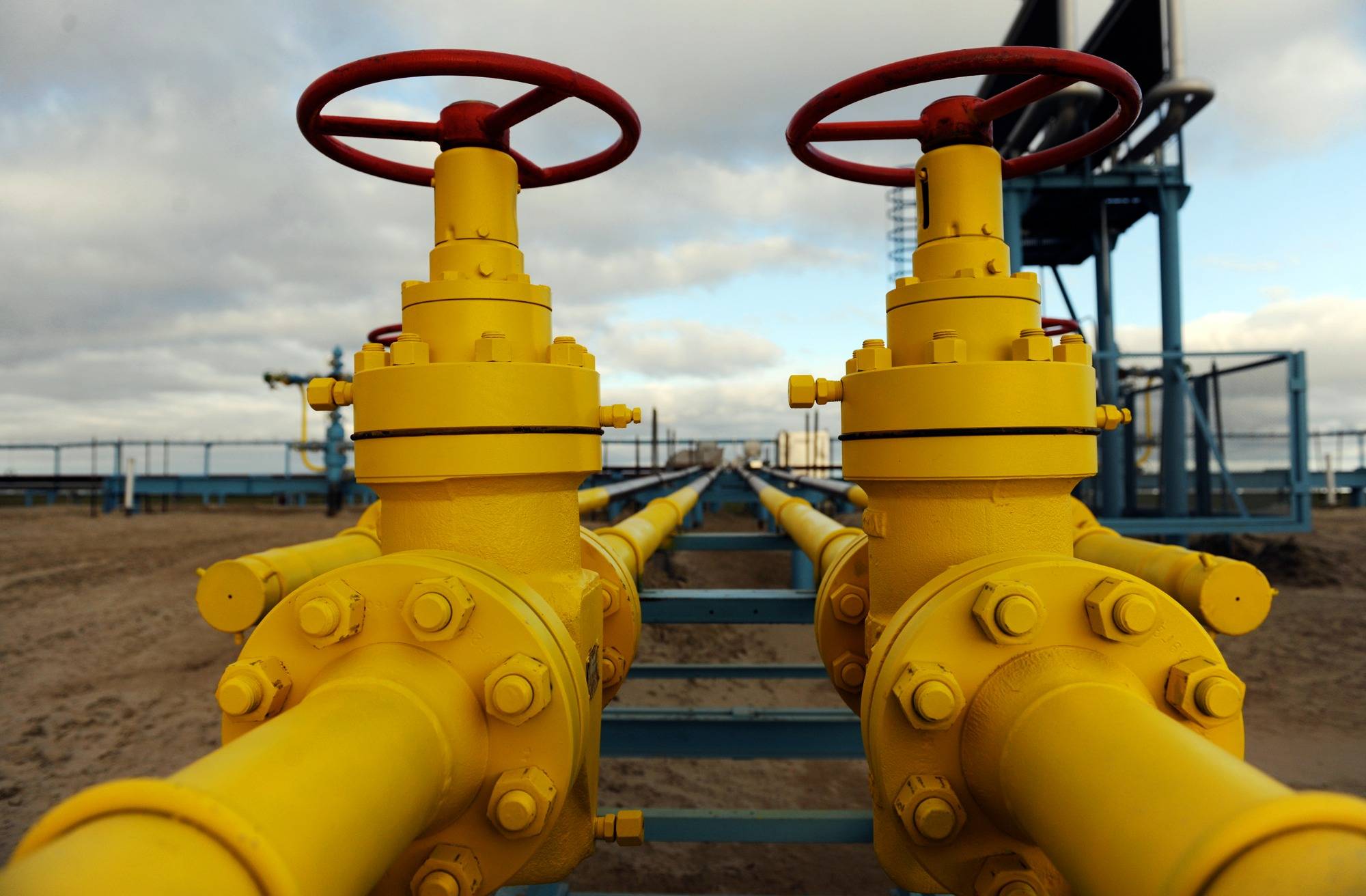
Power of Siberia-2: Construction of Mongolian part may start in early 2024 www.news.mn
Construction of the Mongolian portion of Russia’s planned new Power of Siberia-2 gas pipeline to China may start in the first quarter or first half of 2024, TASS news agency quoted Russian Deputy Prime Minister Viktoria Abramchenko.
Russia wants to increase pipeline gas supplies to China by 50 billion cubic metres (bcm) per year via Power of Siberia-2, while the existing Power of Siberia pipeline is due to provide 38 bcm a year by 2025.
The highly anticipated deal, which opens a new conduit for Russian natural gas supply into northern China, has been on the drawing board for nearly two decades and could become one of the most significant cross border energy deals signed by a Chinese state oil and gas company in recent years.
In 2023, China’s gas consumption is estimated to reach 385 Bcm to 390 Bcm, according to the China Natural Gas Development Report 2023 published by the National Energy Administration.

Russia abolishes duties on Mongolian cashmere www.news.mn
Cashmere supplied to Russia from Mongolia will soon become cheaper — the governments of the two countries have agreed to abolish duties and remove logistical barriers, Deputy Prime Minister Victoria Abramchenko told reporters at Mongolia’s largest cashmere factory Gobi.
“As part of the agreement on the supply of cashmere to Russia, we visited the largest factory for the production of finished products: Mongolian cashmere, Gobi brand. We agreed right here at the factory that we will prepare a roadmap,” she said.
Abramchenko noted that the Ministry of Industry and Trade, the Ministry of Economic Development, the Federal Customs Service, the Central Bank, the Russian border regions, where hubs will be created, will take part in the development of the document.
“It is important for us to run the route, we must deliver finished products to the Russian Federation duty-free. This is probably 50 percent of the cost of finished products,” the Deputy Prime Minister explained.
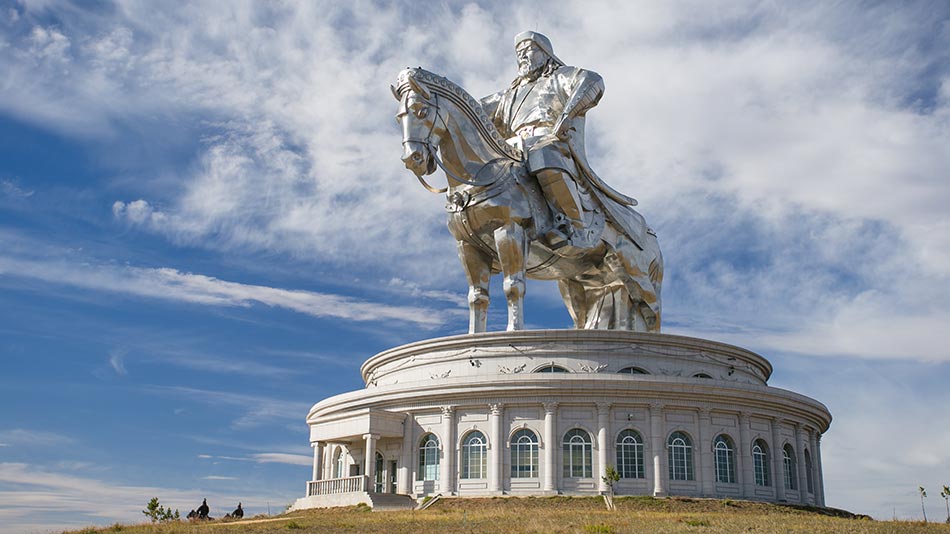
The best places to visit in 2024 named by Lonely Planet: Mongolia, far north Scotland, Philadelphia, Paris and Australia's Kangaroo Island are among the destinations you MUST explore next year www.dailymail.co.uk
The best places to visit in 2024 have been named by the travel experts at Lonely Planet – and it's good news if you're planning a trip to Mongolia.
Lonely Planet's newly released Best In Travel 2024 book crowns the top ten countries, regions and cities to visit next year. Two new categories - 'value' and 'sustainable' - have also been introduced this year to mark Lonely Planet's 50th birthday.
The best cities have been unveiled as Nairobi in Kenya (first) and Paris (second), with three North American destinations in the top ten - Montreal (third), Philadelphia (fifth) and Kansas City (10th).
The best regions are the Trans Dinarica Cycling Route in the Western Balkans (first) and Australia’s Kangaroo Island (second), with the U.S state of Montana eighth and Far North Scotland ranking tenth.
Midwest USA has been named the best destination for value, while Spain is the best for sustainability – with the trails of Wales ranking fourth on the sustainability list.
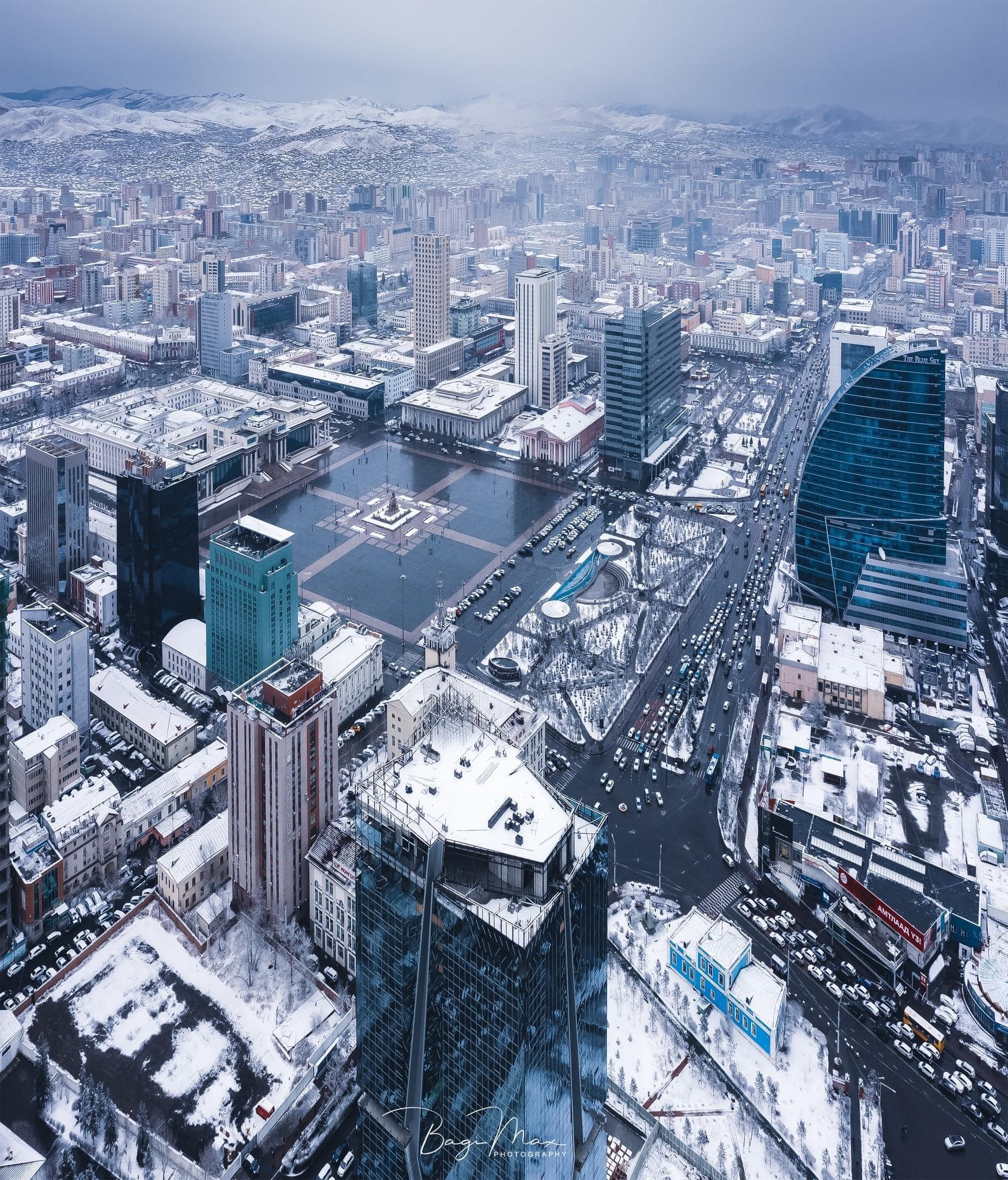
Foreign citizens able to receive services from E-Mongolia www.gogo.mn
Starting from November 2, foreign citizens and tourists residing in Mongolia for official or personal purposes have started using E-Mongolia using F-Register.
In other words, the "Foreign" window has been opened in E-Mongolia, and foreigners can get the necessary state services with the help of F-register. In this section, all types of visa application and renewal information in the highlighted part of the window can be directly transferred to immigration.gov.mn as a link.
A 13-digit registration number (F register) will be issued to a foreigner based on the registration 24 hours after entering the border of Mongolia. Foreigners can also send a photo of your passport to support@immigration.gov.mn to get a foreign registration number in a short time.
Foreigners can also use the F registration number service from the E-Mongolia application. If the foreign citizen fills in the information accurately, a 13-digit F registration number will be sent immediately.
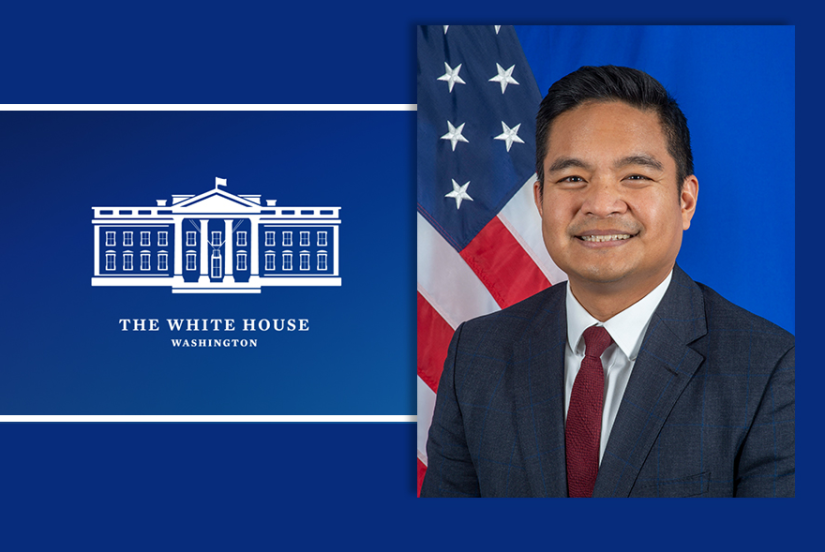
U.S. – Mongolia CPC Partnership 3rd Annual Bilateral Dialogue: Ambassador’s Remarks www.mn.usembassy.gov
Thank you Ms. Nyamgerel for your kind introduction and your dedication to this compact. Thank you Deputy Minister of Justice and Home Affairs Solongoo, Deputy Minister of Labor and Social Protection Zulphkar, and Deputy Prosecutor General Chinbat for your commitment to countering human trafficking and protecting children.
I am so pleased to join you today to convene the third annual United States-Mongolia Child Protection Compact Partnership dialogue. I am eager to hear about the progress over the past year toward achieving the goals of the CPC Partnership, including identifying and assisting victims and holding traffickers accountable. I am also excited to discuss the next steps as we move into the final year of the partnership to sustain these efforts. I look forward to hearing about plans for the next year, as well as ways the United States can work with Mongolia to solidify the Partnership’s achievements beyond its completion.
From the CPC signing in April 2020 and throughout subsequent efforts to fulfill the commitments set forth in the Partnership, the Government of Mongolia has demonstrated its commitment to this fight. Government officials and CPC implementing partners – World Vision and the Asia Foundation – have navigated many challenges, including a global pandemic, and have successfully adjusted where necessary to advance our shared goals. Over the past three years, the CPC Partnership has provided tools and enhanced government efforts to strengthen the response to trafficking and adapt to a changing environment, so we can continue this critical work to help the most vulnerable.
Through the CPC partnership, we have paired $5.5 million in U.S. funding with the Government of Mongolia’s significant investment of resources and personnel. Together, we are working toward our shared goals of strengthening the Government of Mongolia’s capacity to investigate, prosecute, and convict traffickers of children in a victim-centered way; to identify and provide comprehensive trauma-informed care for children who are victims of these crimes; and to prevent child trafficking in all its forms.
This investment has yielded important accomplishments in Mongolia, including the establishment of the Multi-Disciplinary Task Force. I am happy to see so many of members of the task force here today. I am interested to hear how the Government of Mongolia plans to institutionalize and strengthen the Task Force so they can continue to assist victims and coordinate the response to trafficking cases. I was also glad to have witnessed the opening of five child friendly spaces in coordination with the National Police here in Ulaanbaatar. These spaces provide a place where children can get the support they deserve from the criminal justice system. It is important to note that these Child Friendly Spaces are staffed by people who have received advanced training and are prepared to ensure sustained, trauma-informed and age-appropriate care to children.
I am eager to learn more about the great work you are doing and the commitment from the Government of Mongolia and our implementing partners to help children. As part of this work, I encourage the Mongolian government to prioritize its own investment in anti-trafficking efforts. In particular, I would ask authorities across sectors to commit to improved efforts to identify suspected child trafficking victims and refer them to appropriate medical care. Improving identification of victims is a top priority of the CPC Partnership as the first step to ensure child victims receive appropriate support and care, as well as the justice they deserve. This must also include male victims of trafficking and victims of labor trafficking, who are often overlooked. As leaders on the front lines of this fight, you understand that identifying victims is a sign of progress, not failure. I urge you to talk about these issues with your colleagues and dispel any lingering misperceptions that identifying trafficking victims reflects poorly on the Government of Mongolia. I ask you today to pledge to redouble your efforts to identify victims so we can help as many children as possible in the final year of the Partnership.
Further, additional resources are needed to sustain the work of the CPC Partnership, including long-term staffing and maintenance of Child-Friendly Spaces, as well as institutionalization of the training and protocols we have developed. The Partnership’s final year must focus on sustainability so that children will continue get the assistance they deserve for years to come. I ask you to commit to ensuring sufficient resources to combat human trafficking and to provide trauma-informed support and assistance to victims, including children.
This morning, we will hear from various stakeholders, including Mongolian government officials and our implementing partners. We will hear about their accomplishments over the past year, challenges that remain, and plans for the coming year. I am especially interested to learn more from ministries and agencies about the government’s contributions to this Partnership, and how these contributions are improving outcomes for victims – particularly in victim identification, referral, and protection. I also look forward to hearing about plans to sustain the achievements of the partnership beyond the conclusion of U.S. funding next year.
Thank you again for joining us today and for your commitment to combat human trafficking. We have made great progress together, and I am confident we will achieve even more as we continue to work together to protect the children of Mongolia.
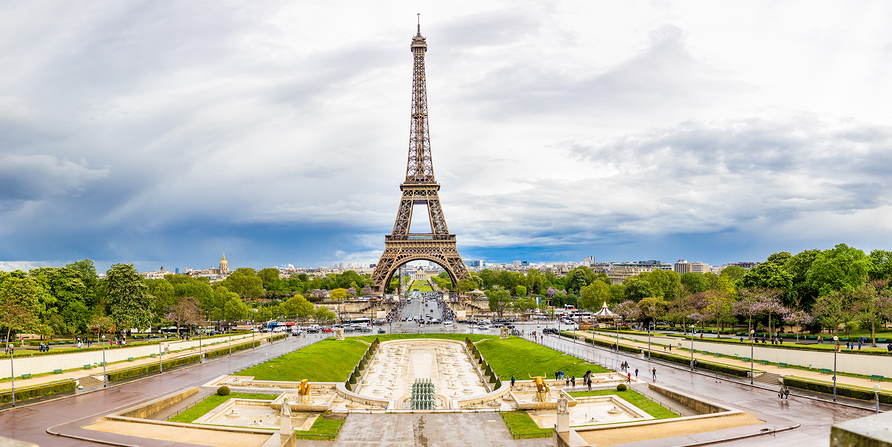
President of the French Senate Pays Courtesy Call on Mongolian President www.montsame.mn
At the invitation of the President of the French Republic Emmanuel Macron, the President of Mongolia Khurelsukh Ukhnaa is paying a State Visit to the French Republic on October 10-14, 2023.
During the Visit, the President of the French Senate Gérard Larcher paid a courtesy call on the President of Mongolia Khurelsukh Ukhnaa on October 11, 2023.
President Khurelsukh congratulated the President of the French Senate Gérard Larcher on his re-election as President of the Senate, winning the recent parliamentary elections in France.
The President of Mongolia expressed satisfaction with the development of relations between Mongolia and the French Republic with the efforts of the two countries. He also appraised the crucial role of close cooperation between the legislative bodies of Mongolia and France in creating a favorable legal environment for expanding cooperation in areas of mutual interest.
The two sides exchanged views on enriching bilateral relations and cooperation with economic and investment content and support each other in achieving the common goals of bringing the relations between Mongolia and the French Republic to a Strategic Partnership.
French Senate President Gérard Larcher wished the President of Mongolia success on his State Visit to France. The French Senate President expressed his commitment to supporting all efforts aimed at expanding Mongolia-France relations and cooperation, besides the cooperation of parliamentary friendship groups of the two countries.
Mongolian President Khurelsukh Ukhnaa signed the Senate Hall's Honorary Guest Book, leaving a message.

IMF forecasts Mongolia GDP at 5.5% in 2023 and 4.5% in 2024 www.intellinews.com
The International Monetary Fund (IMF) is forecasting 2023 GDP growth for Mongolia of 5.5%, following on from last year’s 5.0%.
Mongolia will likely see a 4.5% GDP expansion in 2024, the Fund added in its newly published World Economic Outlook (WEO) October 2023 edition.
The IMF, which cautioned that the global economic recovery remains slow, with growing regional divergences and little margin for policy error, also gave revised consumer price and current account balance projections (see Mongolia highlighted in tables below).
In an executive summary of the latest WEO, the IMF said: “The global recovery from the COVID-19 pandemic and Russia’s invasion of Ukraine remains slow and uneven. Despite economic resilience earlier this year, with a reopening rebound and progress in reducing inflation from last year’s peaks, it is too soon to take comfort.
“Economic activity still falls short of its prepandemic path, especially in emerging market and developing economies, and there are widening divergences among regions. Several forces are holding back the recovery. Some reflect the long-term consequences of the pandemic, the war in Ukraine, and increasing geoeconomic fragmentation. Others are more cyclical in nature, including the effects of monetary policy tightening necessary to reduce inflation, withdrawal of fiscal support amid high debt, and extreme weather events.”
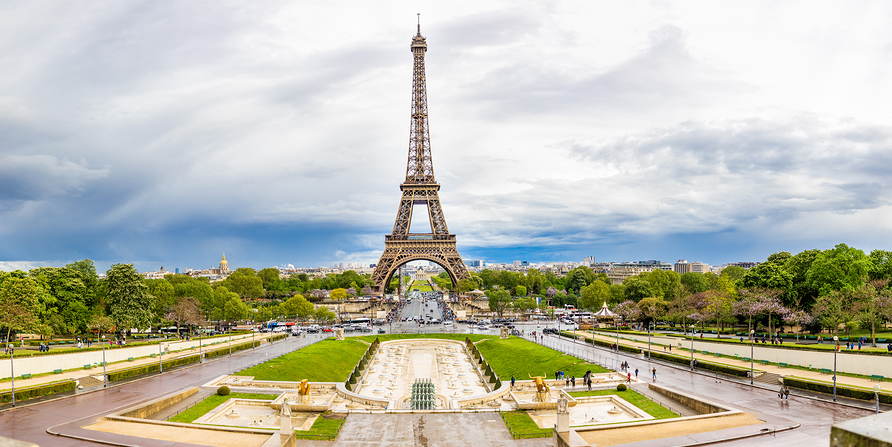
President Khurelsukh Receives Mayor of Paris Anne Hidalgo www.montsame.mn
On October 11, 2023, Mayor of Paris Anne Hidalgo paid a courtesy call on the President of Mongolia Khurelsukh Ukhnaa, who is on a State Visit to the French Republic between October 11 and 14, 2023, at the invitation of French President Emmanuel Macron.
At the Meeting, the two sides discussed issues related to urban planning, traffic congestion, air pollution, and urban green space in the capitals of the two countries.
President Khurelsukh stressed the importance of exchanging best practices for addressing the problems that affect the quality of life of residents of the capital city and noted that he will support the cooperation between the two capitals in this area.
In turn, the Mayor of Paris Anne Hidalgo expressed her commitment to promoting cultural relations between the two cities.
The President of Mongolia also expressed confidence in the successful organization of the 33rd Summer Olympic Games "Paris-2024," a symbol of peace and unity for humanity, and wished success to Mayor Anne Hidalgo.
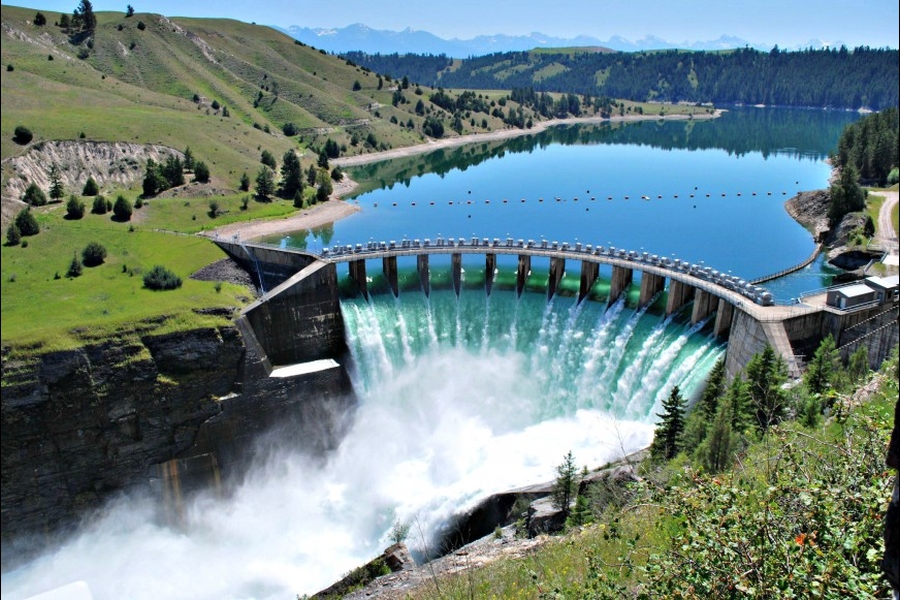
B.Choijilsuren: Loan agreement with China on Erdeneburen hydropower plant agreed www.gogo.mn
B.Choijulsuren, Minister of Energy, reported:
- U.Khurelsukh, President of Mongolia will attend the "Belt and Road" international forum in China next week. During the forum, Mongolia and China will sign several documents. One of them is a loan agreement for the Erdeneburen hydropower plant. And relevant decisions of Chinese government agencies have been made. Preparations from Mongolian side have been made.
Loan of USD 253 million, 95% of the total cost of the Erdeneburen hydropower plant construction project which is USD 266 million, will be received from China. The loan term is 20 years, and the interest rate is 2%. The loan repayment will start after seven years.
According to the government resolution, I will sign the loan agreement. The Ministry of Finance will represent the government as the client, and the energy system of the western region will participate as the borrower. If the loan agreement is concluded in October, the plant will be operational after five years. This means that the loan will start to be repaid two years after its commissioning.
- «
- 1
- 2
- 3
- 4
- 5
- 6
- 7
- 8
- 9
- 10
- 11
- 12
- 13
- 14
- 15
- 16
- 17
- 18
- 19
- 20
- 21
- 22
- 23
- 24
- 25
- 26
- 27
- 28
- 29
- 30
- 31
- 32
- 33
- 34
- 35
- 36
- 37
- 38
- 39
- 40
- 41
- 42
- 43
- 44
- 45
- 46
- 47
- 48
- 49
- 50
- 51
- 52
- 53
- 54
- 55
- 56
- 57
- 58
- 59
- 60
- 61
- 62
- 63
- 64
- 65
- 66
- 67
- 68
- 69
- 70
- 71
- 72
- 73
- 74
- 75
- 76
- 77
- 78
- 79
- 80
- 81
- 82
- 83
- 84
- 85
- 86
- 87
- 88
- 89
- 90
- 91
- 92
- 93
- 94
- 95
- 96
- 97
- 98
- 99
- 100
- 101
- 102
- 103
- 104
- 105
- 106
- 107
- 108
- 109
- 110
- 111
- 112
- 113
- 114
- 115
- 116
- 117
- 118
- 119
- 120
- 121
- 122
- 123
- 124
- 125
- 126
- 127
- 128
- 129
- 130
- 131
- 132
- 133
- 134
- 135
- 136
- 137
- 138
- 139
- 140
- 141
- 142
- 143
- 144
- 145
- 146
- 147
- 148
- 149
- 150
- 151
- 152
- 153
- 154
- 155
- 156
- 157
- 158
- 159
- 160
- 161
- 162
- 163
- 164
- 165
- 166
- 167
- 168
- 169
- 170
- 171
- 172
- 173
- 174
- 175
- 176
- 177
- 178
- 179
- 180
- 181
- 182
- 183
- 184
- 185
- 186
- 187
- 188
- 189
- 190
- 191
- 192
- 193
- 194
- 195
- 196
- 197
- 198
- 199
- 200
- 201
- 202
- 203
- 204
- 205
- 206
- 207
- 208
- 209
- 210
- 211
- 212
- 213
- 214
- 215
- 216
- 217
- 218
- 219
- 220
- 221
- 222
- 223
- 224
- 225
- 226
- 227
- 228
- 229
- 230
- 231
- 232
- 233
- 234
- 235
- 236
- 237
- 238
- 239
- 240
- 241
- 242
- 243
- 244
- 245
- 246
- 247
- 248
- 249
- 250
- 251
- 252
- 253
- 254
- 255
- 256
- 257
- 258
- 259
- 260
- 261
- 262
- 263
- 264
- 265
- 266
- 267
- 268
- 269
- 270
- 271
- 272
- 273
- 274
- 275
- 276
- 277
- 278
- 279
- 280
- 281
- 282
- 283
- 284
- 285
- 286
- 287
- 288
- 289
- 290
- 291
- 292
- 293
- 294
- 295
- 296
- 297
- 298
- 299
- 300
- 301
- 302
- 303
- 304
- 305
- 306
- 307
- 308
- 309
- 310
- 311
- 312
- 313
- 314
- 315
- 316
- 317
- 318
- 319
- 320
- 321
- 322
- 323
- 324
- 325
- 326
- 327
- 328
- 329
- 330
- 331
- 332
- 333
- 334
- 335
- 336
- 337
- 338
- 339
- 340
- 341
- 342
- 343
- 344
- 345
- 346
- 347
- 348
- 349
- 350
- 351
- 352
- 353
- 354
- 355
- 356
- 357
- 358
- 359
- 360
- 361
- 362
- 363
- 364
- 365
- 366
- 367
- 368
- 369
- 370
- 371
- 372
- 373
- 374
- 375
- 376
- 377
- 378
- 379
- 380
- 381
- 382
- 383
- 384
- 385
- 386
- 387
- 388
- 389
- 390
- 391
- 392
- 393
- 394
- 395
- 396
- 397
- 398
- 399
- 400
- 401
- 402
- 403
- 404
- 405
- 406
- 407
- 408
- 409
- 410
- 411
- 412
- 413
- 414
- 415
- 416
- 417
- 418
- 419
- 420
- 421
- 422
- 423
- 424
- 425
- 426
- 427
- 428
- 429
- 430
- 431
- 432
- 433
- 434
- 435
- 436
- 437
- 438
- 439
- 440
- 441
- 442
- 443
- 444
- 445
- 446
- 447
- 448
- 449
- 450
- 451
- 452
- 453
- 454
- 455
- 456
- 457
- 458
- 459
- 460
- 461
- 462
- 463
- 464
- 465
- 466
- 467
- 468
- 469
- 470
- 471
- 472
- 473
- 474
- 475
- 476
- 477
- 478
- 479
- 480
- 481
- 482
- 483
- 484
- 485
- 486
- 487
- 488
- 489
- 490
- 491
- 492
- 493
- 494
- 495
- 496
- 497
- 498
- 499
- 500
- 501
- 502
- 503
- 504
- 505
- 506
- 507
- 508
- 509
- 510
- 511
- 512
- 513
- 514
- 515
- 516
- 517
- 518
- 519
- 520
- 521
- 522
- 523
- 524
- 525
- 526
- 527
- 528
- 529
- 530
- 531
- 532
- 533
- 534
- 535
- 536
- 537
- 538
- 539
- 540
- 541
- 542
- 543
- 544
- 545
- 546
- 547
- 548
- 549
- 550
- 551
- 552
- 553
- 554
- 555
- 556
- 557
- 558
- 559
- 560
- 561
- 562
- 563
- 564
- 565
- 566
- 567
- 568
- 569
- 570
- 571
- 572
- 573
- 574
- 575
- 576
- 577
- 578
- 579
- 580
- 581
- 582
- 583
- 584
- 585
- 586
- 587
- 588
- 589
- 590
- 591
- 592
- 593
- 594
- 595
- 596
- 597
- 598
- 599
- 600
- 601
- 602
- 603
- 604
- 605
- 606
- 607
- 608
- 609
- 610
- 611
- 612
- 613
- 614
- 615
- 616
- 617
- 618
- 619
- 620
- 621
- 622
- 623
- 624
- 625
- 626
- 627
- 628
- 629
- 630
- 631
- 632
- 633
- 634
- 635
- 636
- 637
- 638
- 639
- 640
- 641
- 642
- 643
- 644
- 645
- 646
- 647
- 648
- 649
- 650
- 651
- 652
- 653
- 654
- 655
- 656
- 657
- 658
- 659
- 660
- 661
- 662
- 663
- 664
- 665
- 666
- 667
- 668
- 669
- 670
- 671
- 672
- 673
- 674
- 675
- 676
- 677
- 678
- 679
- 680
- 681
- 682
- 683
- 684
- 685
- 686
- 687
- 688
- 689
- 690
- 691
- 692
- 693
- 694
- 695
- 696
- 697
- 698
- 699
- 700
- 701
- 702
- 703
- 704
- 705
- 706
- 707
- 708
- 709
- 710
- 711
- 712
- 713
- 714
- 715
- 716
- 717
- 718
- 719
- 720
- 721
- 722
- 723
- 724
- 725
- 726
- 727
- 728
- 729
- 730
- 731
- 732
- 733
- 734
- 735
- 736
- 737
- 738
- 739
- 740
- 741
- 742
- 743
- 744
- 745
- 746
- 747
- 748
- 749
- 750
- 751
- 752
- 753
- 754
- 755
- 756
- 757
- 758
- 759
- 760
- 761
- 762
- 763
- 764
- 765
- 766
- 767
- 768
- 769
- 770
- 771
- 772
- 773
- 774
- 775
- 776
- 777
- 778
- 779
- 780
- 781
- 782
- 783
- 784
- 785
- 786
- 787
- 788
- 789
- 790
- 791
- 792
- 793
- 794
- 795
- 796
- 797
- 798
- 799
- 800
- 801
- 802
- 803
- 804
- 805
- 806
- 807
- 808
- 809
- 810
- 811
- 812
- 813
- 814
- 815
- 816
- 817
- 818
- 819
- 820
- 821
- 822
- 823
- 824
- 825
- 826
- 827
- 828
- 829
- 830
- 831
- 832
- 833
- 834
- 835
- 836
- 837
- 838
- 839
- 840
- 841
- 842
- 843
- 844
- 845
- 846
- 847
- 848
- 849
- 850
- 851
- 852
- 853
- 854
- 855
- 856
- 857
- 858
- 859
- 860
- 861
- 862
- 863
- 864
- 865
- 866
- 867
- 868
- 869
- 870
- 871
- 872
- 873
- 874
- 875
- 876
- 877
- 878
- 879
- 880
- 881
- 882
- 883
- 884
- 885
- 886
- 887
- 888
- 889
- 890
- 891
- 892
- 893
- 894
- 895
- 896
- 897
- 898
- 899
- 900
- 901
- 902
- 903
- 904
- 905
- 906
- 907
- 908
- 909
- 910
- 911
- 912
- 913
- 914
- 915
- 916
- 917
- 918
- 919
- 920
- 921
- 922
- 923
- 924
- 925
- 926
- 927
- 928
- 929
- 930
- 931
- 932
- 933
- 934
- 935
- 936
- 937
- 938
- 939
- 940
- 941
- 942
- 943
- 944
- 945
- 946
- 947
- 948
- 949
- 950
- 951
- 952
- 953
- 954
- 955
- 956
- 957
- 958
- 959
- 960
- 961
- 962
- 963
- 964
- 965
- 966
- 967
- 968
- 969
- 970
- 971
- 972
- 973
- 974
- 975
- 976
- 977
- 978
- 979
- 980
- 981
- 982
- 983
- 984
- 985
- 986
- 987
- 988
- 989
- 990
- 991
- 992
- 993
- 994
- 995
- 996
- 997
- 998
- 999
- 1000
- 1001
- 1002
- 1003
- 1004
- 1005
- 1006
- 1007
- 1008
- 1009
- 1010
- 1011
- 1012
- 1013
- 1014
- 1015
- 1016
- 1017
- 1018
- 1019
- 1020
- 1021
- 1022
- 1023
- 1024
- 1025
- 1026
- 1027
- 1028
- 1029
- 1030
- 1031
- 1032
- 1033
- 1034
- 1035
- 1036
- 1037
- 1038
- 1039
- 1040
- 1041
- 1042
- 1043
- 1044
- 1045
- 1046
- 1047
- 1048
- 1049
- 1050
- 1051
- 1052
- 1053
- 1054
- 1055
- 1056
- 1057
- 1058
- 1059
- 1060
- 1061
- 1062
- 1063
- 1064
- 1065
- 1066
- 1067
- 1068
- 1069
- 1070
- 1071
- 1072
- 1073
- 1074
- 1075
- 1076
- 1077
- 1078
- 1079
- 1080
- 1081
- 1082
- 1083
- 1084
- 1085
- 1086
- 1087
- 1088
- 1089
- 1090
- 1091
- 1092
- 1093
- 1094
- 1095
- 1096
- 1097
- 1098
- 1099
- 1100
- 1101
- 1102
- 1103
- 1104
- 1105
- 1106
- 1107
- 1108
- 1109
- 1110
- 1111
- 1112
- 1113
- 1114
- 1115
- 1116
- 1117
- 1118
- 1119
- 1120
- 1121
- 1122
- 1123
- 1124
- 1125
- 1126
- 1127
- 1128
- 1129
- 1130
- 1131
- 1132
- 1133
- 1134
- 1135
- 1136
- 1137
- 1138
- 1139
- 1140
- 1141
- 1142
- 1143
- 1144
- 1145
- 1146
- 1147
- 1148
- 1149
- 1150
- 1151
- 1152
- 1153
- 1154
- 1155
- 1156
- 1157
- 1158
- 1159
- 1160
- 1161
- 1162
- 1163
- 1164
- 1165
- 1166
- 1167
- 1168
- 1169
- 1170
- 1171
- 1172
- 1173
- 1174
- 1175
- 1176
- 1177
- 1178
- 1179
- 1180
- 1181
- 1182
- 1183
- 1184
- 1185
- 1186
- 1187
- 1188
- 1189
- 1190
- 1191
- 1192
- 1193
- 1194
- 1195
- 1196
- 1197
- 1198
- 1199
- 1200
- 1201
- 1202
- 1203
- 1204
- 1205
- 1206
- 1207
- 1208
- 1209
- 1210
- 1211
- 1212
- 1213
- 1214
- 1215
- 1216
- 1217
- 1218
- 1219
- 1220
- 1221
- 1222
- 1223
- 1224
- 1225
- 1226
- 1227
- 1228
- 1229
- 1230
- 1231
- 1232
- 1233
- 1234
- 1235
- 1236
- 1237
- 1238
- 1239
- 1240
- 1241
- 1242
- 1243
- 1244
- 1245
- 1246
- 1247
- 1248
- 1249
- 1250
- 1251
- 1252
- 1253
- 1254
- 1255
- 1256
- 1257
- 1258
- 1259
- 1260
- 1261
- 1262
- 1263
- 1264
- 1265
- 1266
- 1267
- 1268
- 1269
- 1270
- 1271
- 1272
- 1273
- 1274
- 1275
- 1276
- 1277
- 1278
- 1279
- 1280
- 1281
- 1282
- 1283
- 1284
- 1285
- 1286
- 1287
- 1288
- 1289
- 1290
- 1291
- 1292
- 1293
- 1294
- 1295
- 1296
- 1297
- 1298
- 1299
- 1300
- 1301
- 1302
- 1303
- 1304
- 1305
- 1306
- 1307
- 1308
- 1309
- 1310
- 1311
- 1312
- 1313
- 1314
- 1315
- 1316
- 1317
- 1318
- 1319
- 1320
- 1321
- 1322
- 1323
- 1324
- 1325
- 1326
- 1327
- 1328
- 1329
- 1330
- 1331
- 1332
- 1333
- 1334
- 1335
- 1336
- 1337
- 1338
- 1339
- 1340
- 1341
- 1342
- 1343
- 1344
- 1345
- 1346
- 1347
- 1348
- 1349
- 1350
- 1351
- 1352
- 1353
- 1354
- 1355
- 1356
- 1357
- 1358
- 1359
- 1360
- 1361
- 1362
- 1363
- 1364
- 1365
- 1366
- 1367
- 1368
- 1369
- 1370
- 1371
- 1372
- 1373
- 1374
- 1375
- 1376
- 1377
- 1378
- 1379
- 1380
- 1381
- 1382
- 1383
- 1384
- 1385
- 1386
- 1387
- 1388
- 1389
- 1390
- 1391
- 1392
- 1393
- 1394
- 1395
- 1396
- 1397
- 1398
- 1399
- 1400
- 1401
- 1402
- 1403
- 1404
- 1405
- 1406
- 1407
- 1408
- 1409
- 1410
- 1411
- 1412
- 1413
- 1414
- 1415
- 1416
- 1417
- 1418
- 1419
- 1420
- 1421
- 1422
- 1423
- 1424
- 1425
- 1426
- 1427
- 1428
- 1429
- 1430
- 1431
- 1432
- 1433
- 1434
- 1435
- 1436
- 1437
- 1438
- 1439
- 1440
- 1441
- 1442
- 1443
- 1444
- 1445
- 1446
- 1447
- 1448
- 1449
- 1450
- 1451
- 1452
- 1453
- 1454
- 1455
- 1456
- 1457
- 1458
- 1459
- 1460
- 1461
- 1462
- 1463
- 1464
- 1465
- 1466
- 1467
- 1468
- 1469
- 1470
- 1471
- 1472
- 1473
- 1474
- 1475
- 1476
- 1477
- 1478
- 1479
- 1480
- 1481
- 1482
- 1483
- 1484
- 1485
- 1486
- 1487
- 1488
- 1489
- 1490
- 1491
- 1492
- 1493
- 1494
- 1495
- 1496
- 1497
- 1498
- 1499
- 1500
- 1501
- 1502
- 1503
- 1504
- 1505
- 1506
- 1507
- 1508
- 1509
- 1510
- 1511
- 1512
- 1513
- 1514
- 1515
- 1516
- 1517
- 1518
- 1519
- 1520
- 1521
- 1522
- 1523
- 1524
- 1525
- 1526
- 1527
- 1528
- 1529
- 1530
- 1531
- 1532
- 1533
- 1534
- 1535
- 1536
- 1537
- 1538
- 1539
- 1540
- 1541
- 1542
- 1543
- 1544
- 1545
- 1546
- 1547
- 1548
- 1549
- 1550
- 1551
- 1552
- 1553
- 1554
- 1555
- 1556
- 1557
- 1558
- 1559
- 1560
- 1561
- 1562
- 1563
- 1564
- 1565
- 1566
- 1567
- 1568
- 1569
- 1570
- 1571
- 1572
- 1573
- 1574
- 1575
- 1576
- 1577
- 1578
- 1579
- 1580
- 1581
- 1582
- 1583
- 1584
- 1585
- 1586
- 1587
- 1588
- 1589
- 1590
- 1591
- 1592
- 1593
- 1594
- 1595
- 1596
- 1597
- 1598
- 1599
- 1600
- 1601
- 1602
- 1603
- 1604
- 1605
- 1606
- 1607
- 1608
- 1609
- 1610
- 1611
- 1612
- 1613
- 1614
- 1615
- 1616
- 1617
- 1618
- 1619
- 1620
- 1621
- 1622
- 1623
- 1624
- 1625
- 1626
- 1627
- 1628
- 1629
- 1630
- 1631
- 1632
- 1633
- 1634
- 1635
- 1636
- 1637
- 1638
- 1639
- 1640
- 1641
- 1642
- 1643
- 1644
- 1645
- 1646
- 1647
- 1648
- 1649
- 1650
- 1651
- 1652
- 1653
- 1654
- 1655
- 1656
- 1657
- 1658
- 1659
- 1660
- 1661
- 1662
- 1663
- 1664
- 1665
- 1666
- 1667
- 1668
- 1669
- 1670
- 1671
- 1672
- 1673
- 1674
- 1675
- 1676
- 1677
- 1678
- 1679
- 1680
- 1681
- 1682
- 1683
- 1684
- 1685
- 1686
- 1687
- 1688
- 1689
- 1690
- 1691
- 1692
- 1693
- 1694
- 1695
- 1696
- 1697
- 1698
- 1699
- 1700
- 1701
- 1702
- 1703
- 1704
- 1705
- 1706
- 1707
- 1708
- 1709
- 1710
- 1711
- 1712
- 1713
- 1714
- »






